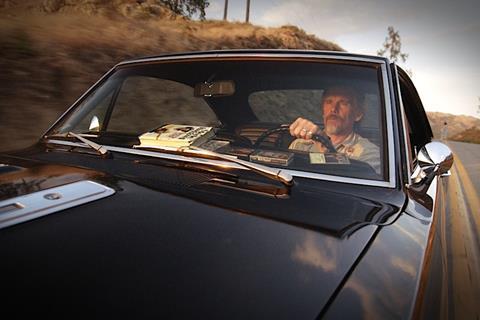Sprawling Telluride premiere assembles a wealth of stars to perform Haggard’s songs and discuss his impact

Dir: Ethan Hawke. US. 2025. 193mins
As a filmmaker and novelist, Ethan Hawke often celebrates the lives of artists, acknowledging their messy humanity while honouring their creative gifts. Little wonder, then, that he would devote a three-hour-plus documentary to Merle Haggard, the legendary country singer-songwriter who gave the world numerous working-class anthems while battling a darkness he could never overcome. Sprawling and emotional, Highway 99 is a layered tribute highlighted by a series of performers covering Haggard’s songs while discussing his impact as an authentic, irreplaceable musical figure.
Hawke positions Haggard as a symbol of America
This Telluride premiere (which includes a 15-minute intermission) is divided into two parts — hence Highway 99’s subtitle, A Double Album — and organised around a track list of roughly 30 Haggard songs played by the likes of Norah Jones, Sturgill Simpson and others. Hawke, who previously directed the documentaries Seymour: An Introduction (about composer Seymour Bernstein) and The Last Movie Stars (about Hollywood married couple Joanne Woodward and Paul Newman), is a central presence in Highway 99, approaching this material from a personal perspective.
During the film’s opening moments, Hawke explains that he and his father shared a fondness for Haggard, a country superstar starting out in the late 1960s who wrote honestly about his romantic travails and a rough adolescence largely spent behind bars. (Haggard died on his 79th birthday in 2016.) Driving through California on Highway 99 — an iconic stretch of road that connects many different chapters of Haggard’s life — Hawke muses on the musician’s legacy, reads aloud from his memoir and speaks to performers from the worlds of country, punk, jazz and hip-hop to understand why Haggard’s music resonates so widely.
As that description suggests, Highway 99 is no formulaic music-doc that blandly regurgitates its subject’s career peaks across a rise-then-fall-then-rise narrative. Hawke includes all the pertinent historical details — Haggard’s stint in San Quentin, his multiple marriages, his drug addiction, his extraordinary run of No. 1 hits on the country charts — but the filmmaker cares less about biographical particulars than what Haggard represented. Musicians such as Killer Mike, Gillian Welch and Steve Earle offer their insights into his lyrical themes, while those who knew him well (specifically, Dolly Parton and Willie Nelson) share memories of their late friend.
The film’s tracklist framework provides the opportunity to hear many superb renditions of Haggard songs, whether they be classics or obscurities. Covers albums can often be mixed bags, but Highway 99’s tributes are accomplished and fairly faithful, the performers’ clear affection for Haggard adding poignancy to the renditions. Perhaps inevitably in this bittersweet context, Haggard’s ballads especially shine, with Jamey Johnson’s cover of ‘Sing Me Back Home’ and Lucinda Williams’ take on ‘Going Where The Lonely Go’ suffused with tenderness.
Highway 99 mourns the void that was left from Haggard’s father’s death at age 9 — no amount of commercial success could heal that pain, leading him to drug abuse and, eventually, bankruptcy. Haggard was a musician of wilful contradictions, writing anti-protest songs like ‘The Fightin’ Side Of Me’ during the Vietnam War but then endorsing Hillary Clinton in the wake of 9/11 and the Iraq War. Editor Barry Poltermann deftly weaves in archival clips in which Haggard explains his idiosyncratic viewpoints.
Sometimes, the documentary’s grandiose vision of Haggard gets in the way of the quietly moving interviews and performances. Hawke can overact his reading of Haggard’s memoir, and likewise he occasionally (and jarringly) inserts himself into the narrative. (There are copious shots of Hawke driving Highway 99, frequently stopping to stare pensively at the open expanses around him.) What made Haggard’s heartbreaking tunes so powerful was the restraint he brought to them, but Hawke’s effusive approach risks overshadowing his subject’s plainspoken poetry. But such quibbles don’t significantly detract from the love and care Hawke has put into this tribute.
Production companies: Rolling Stone Films, Under the Influence, September Club
International sales: Cinetic Media, sales@cineticmedia.com
Producers: Barak Moffitt, Daniel Seliger, Jeremy Coon, Jason Fine, Gus Wenner, Ryan Hawke
Cinematography: Buddy Squires
Editing: Barry Poltermann
























